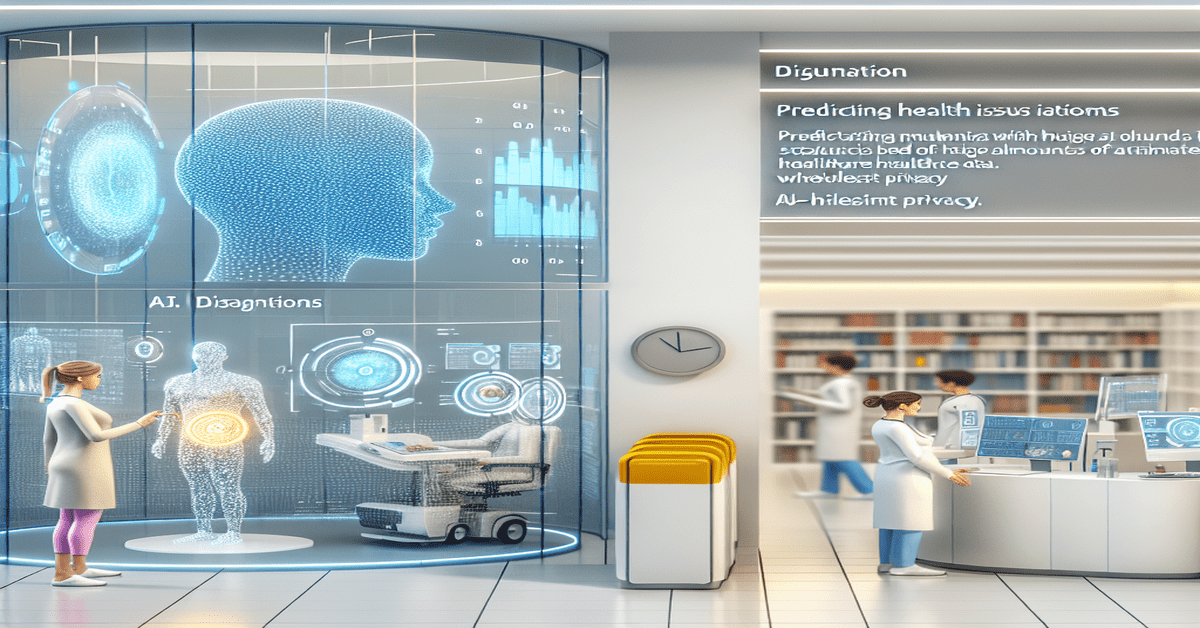The Potential of AI in Improving U.S. Fiscal Health
The United States has been grappling with rising healthcare costs for decades, and it has become increasingly clear that this issue is a major contributor to the nation’s fiscal challenges. However, a group of economists believes that artificial intelligence (AI) could hold the key to addressing this problem and improving the overall fiscal health of the country.
The Healthcare Cost Conundrum
Healthcare is one of the largest expenses for the U.S. government, and it continues to grow at an alarming rate. In fact, healthcare costs are projected to reach $6.2 trillion by 2028, accounting for nearly 20% of the nation’s GDP. This puts a significant strain on the federal budget and contributes to the ever-growing national debt.
AI as a Game-Changer
Economists argue that AI has the potential to revolutionize the healthcare industry and, in turn, help alleviate the financial burden on the government. By leveraging the power of machine learning and data analytics, AI can enhance the efficiency and accuracy of various aspects of healthcare, from diagnosis and treatment to patient care and administrative tasks.
Improved Diagnostic Accuracy
One of the most promising applications of AI in healthcare is its ability to assist in medical diagnosis. AI algorithms can analyze vast amounts of patient data, including medical records, imaging scans, and lab results, to identify patterns and anomalies that may be difficult for human doctors to detect. This can lead to earlier detection of diseases, more accurate diagnoses, and targeted treatment plans, ultimately improving patient outcomes and reducing healthcare costs.
Personalized Medicine
AI can also enable personalized medicine by analyzing an individual’s genetic profile, medical history, and lifestyle factors to develop customized treatment plans. By tailoring therapies to a patient’s specific needs, healthcare providers can optimize treatment effectiveness and minimize adverse reactions, leading to better health outcomes and reduced healthcare expenditures in the long run.
Streamlined Administrative Tasks
In addition to clinical applications, AI can also streamline administrative tasks in healthcare, such as billing, coding, and record-keeping. By automating these processes, healthcare organizations can reduce administrative overhead, minimize errors, and free up resources to focus on patient care. This can result in significant cost savings for the healthcare system as a whole.
The Economic Impact
The potential economic impact of AI in healthcare is substantial. According to a report by Accenture, AI applications in healthcare could save up to $150 billion annually for the U.S. healthcare economy by 2026. These savings could be realized through reduced hospital readmissions, more efficient drug discovery, and improved patient self-management, among other factors.
By reducing healthcare costs, AI can help narrow the U.S. budget deficit and improve the nation’s fiscal health. This, in turn, could free up resources for other critical areas, such as education, infrastructure, and social programs, further contributing to economic growth and stability.
Challenges and Considerations
While the potential benefits of AI in healthcare are significant, there are also challenges and considerations that must be addressed. One of the primary concerns is the issue of data privacy and security. As AI relies heavily on patient data, it is crucial to ensure that this information is protected and used ethically.
Another challenge is the need for regulatory frameworks to govern the development and deployment of AI in healthcare. This includes establishing standards for AI algorithms, ensuring transparency and accountability, and addressing potential biases in AI systems.
Furthermore, there is a need for collaboration between healthcare providers, technology companies, and policymakers to ensure that AI is integrated into the healthcare system in a way that maximizes its benefits while minimizing potential risks.
The Way Forward
Despite these challenges, the potential of AI to transform healthcare and improve the fiscal health of the United States is too significant to ignore. By investing in AI research and development, fostering public-private partnerships, and addressing the ethical and regulatory considerations, we can harness the power of this technology to create a more efficient, effective, and sustainable healthcare system.
As we move forward, it is essential to approach AI in healthcare with a balanced perspective, recognizing both its potential benefits and its limitations. By doing so, we can work towards a future in which AI not only improves patient care but also contributes to the overall economic well-being of the nation.
#ArtificialIntelligence #HealthcareInnovation #EconomicImpact
-> Original article and inspiration provided by Hakyung Kim
-> Connect with one of our AI Strategists today at Opahl Technologies


